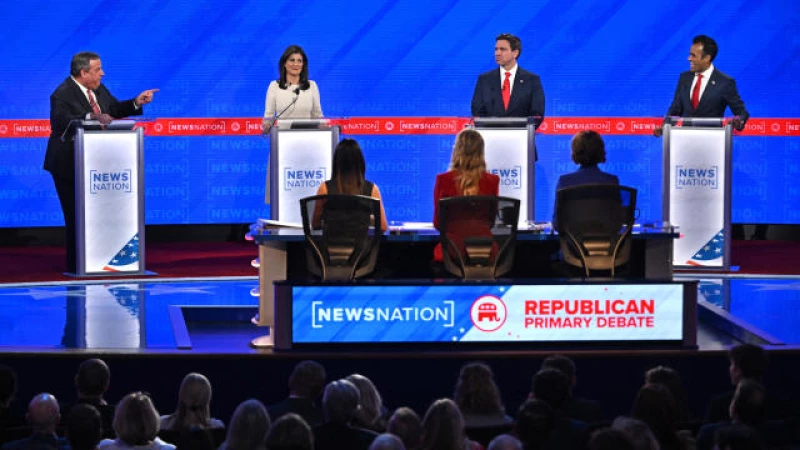There are expected to be three Republican presidential debates in January, but which of the major candidates will actually show up, or even make the stages, is far from clear at this point.
A CNN debate will be hosted in Iowa, which has the first Republican caucus, while CNN and ABC/WMUR are set to have separate debates in New Hampshire, which is home to the first presidential primary. The debates give the candidates trailing former president Donald Trump by large margins a chance to make their pitch on a national stage before voters head to the polls.
Candidates' ability to participate will hinge on meeting requirements laid out by each organization hosting the debates. But as of Friday evening, Vivek Ramaswamy's campaign was the only one to tell CBS News that the Ohio entrepreneur intends to be at each of the upcoming trio of debates, which were announced earlier this week.
"More debate and free speech is better than less! We're in," Ramaswamy's press secretary, Tricia McLaughlin, told CBS News.
Florida Gov. Ron DeSantis has also taken to social media to say he's looking forward to the debate in Iowa and the ABC debate in New Hampshire.
"I think he has a lot to say on his keyboard but he should get on stage and stand up there for two hours and take the questions that everybody else does, I think would be useful. And I know a lot of voters here will expect that because they take this process very seriously," DeSantis said.
Trump has not attended any of the previous four Republican debates. His campaign did not respond to a request for comment about whether he would participate in the upcoming January debates.
The campaign for Nikki Haley, the former ambassador to the United Nations, declined to comment and former New Jersey governor Chris Christie's campaign did not immediately respond to a request for comment.
Asa Hutchinson told CBS News he would participate, but the former Arkansas governor has not met participation requirements since the first debate that was held in August.
What are the requirements for the next Republican debates?
The New Hampshire CNN debate is scheduled for Jan. 21 at St. Anselm College in New Hampshire.
The top three candidates in the Iowa caucuses will be invited to the CNN New Hampshire debate. The requirements include a 10% support threshold in three polls, one of which must be "an approved poll of New Hampshire Republican likely primary voters."
ABC News announced this week plans to partner with WMUR-TV to host a debate at St. Anselm on Jan. 18. That debate has been sponsored by the New Hampshire Republican Party.
New Hampshire GOP chair Chris Ager said that the CNN New Hampshire debate was planned without the state party's backing, and on Friday he posted on X, the site formerly known as Twitter, that the only debate backed by the New Hampshire GOP would be the ABC/WMUR debate.
Ager told CBS News earlier this week that the state party had been planning contingencies in case the Republican National Committee backed out of sponsoring debates.
The RNC to Step Back from Upcoming Debates
According to reliable sources, the Republican National Committee (RNC) has decided not to be involved in the upcoming debates. The RNC, which previously sanctioned the first four debates based on polling and donation requirements, believes that Donald Trump will be the party's nominee and that further debates will have limited value.
A statement from the RNC Committee to CBS News on Friday said, "It is now time for Republican primary voters to decide who will be our next President and candidates are free to use any forum or format to communicate to voters as they see fit."
This decision marks a significant shift in the role of the RNC in the primary process, allowing candidates to have more freedom in choosing how they communicate with voters.
This report was contributed to by journalists in the CBS News Political Unit.







